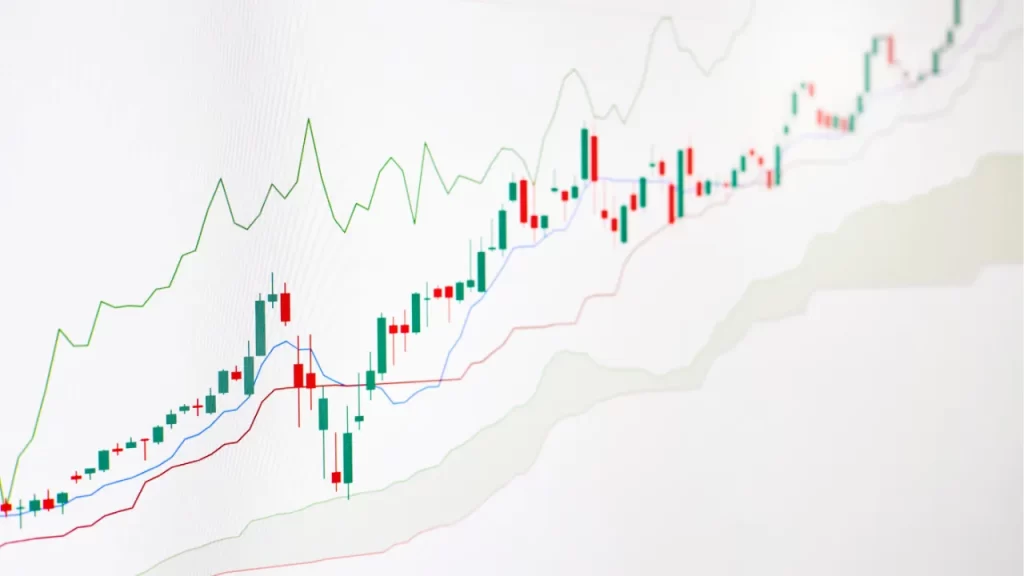CFD trading allows you to speculate on the price movements of various financial instruments—ranging from stocks and indices to commodities and forex—without owning the underlying asset.
Its appeal lies in the ability to trade on margin and take advantage of both upward and downward market movements.
However, this flexibility also introduces certain risks that every trader should understand before diving in.

What Are CFDs?
Before exploring the pros and cons, it’s important to have a clear understanding of what CFDs are:
- Definition: A Contract for Difference (CFD) is a derivative product that allows you to speculate on the price movement of an asset without owning it.
- Leverage: CFDs are typically traded on margin, meaning you only need to deposit a fraction of the trade’s total value.
- Market Access: CFDs provide access to a wide range of markets from a single trading platform.
- Speculation on Price Movements: Whether the asset’s price is rising or falling, CFDs allow you to potentially profit from either movement.

Pros of CFD Trading
1. Leverage for Increased Exposure
- Benefit: CFDs allow you to control a larger position with a smaller amount of capital. This can amplify your profits if the market moves in your favor.
- Consideration: The use of leverage also increases the risk of larger losses if the market moves against you.
2. Ability to Trade Both Rising and Falling Markets
- Benefit: You can open positions in both directions—going long when you expect prices to rise or short when you anticipate a decline. This dual capability is particularly useful in volatile markets.
- Consideration: Successful short-selling requires a good understanding of market trends and timing, which may be challenging for beginners.
3. Access to Diverse Markets
- Benefit: CFDs provide exposure to a variety of asset classes such as stocks, indices, commodities, and forex, all from one trading account.
- Consideration: While diversity can be beneficial, it also means you need to stay informed about different markets and their unique factors.
4. No Ownership Hassles
- Benefit: Since you don’t own the underlying asset, you avoid issues related to physical ownership like storage, management fees, or complexities associated with dividend rights.
- Consideration: Lack of ownership also means you miss out on benefits such as dividends or voting rights that come with owning the actual asset.
5. Cost Efficiency
- Benefit: CFD trading can sometimes involve lower upfront costs compared to traditional trading because you’re only required to put up a fraction of the total position value.
- Consideration: Costs such as spreads, commissions, and overnight fees can add up, affecting your overall profitability.

Cons of CFD Trading
1. High Risk Due to Leverage
- Risk: While leverage can boost profits, it can also magnify losses. A small adverse movement in price can result in significant losses, sometimes exceeding your initial investment.
- Risk Management: It is essential to implement strict risk management strategies, such as stop-loss orders and careful position sizing.
2. Cost Complexity
- Risk: Trading costs are not always straightforward. Apart from the spread, you may incur commissions and overnight financing fees, which can reduce your profit margins.
- Consideration: Always factor these costs into your trading plan to understand your break-even points.
3. Market Volatility
- Risk: CFDs are highly sensitive to market movements. Sudden volatility can lead to rapid and substantial losses.
- Consideration: Stay updated with market news and trends, and use technical analysis to time your entries and exits effectively.
4. Regulatory and Broker Risks
- Risk: CFD trading is subject to varying regulatory standards depending on your region. Additionally, the reputation and reliability of your broker are crucial, as not all brokers offer the same level of protection.
- Consideration: Choose a well-regulated broker with a solid track record and transparent fee structures.
5. No Ownership Benefits
- Risk: Since you don’t own the underlying asset, you miss out on potential long-term benefits like dividends, voting rights, or the inherent value of the asset.
- Consideration: This might make CFD trading less attractive for those looking to build long-term wealth through asset accumulation.

Is CFD Trading Right for You?
Determining whether CFD trading is suitable for you depends on several factors:
- Risk Tolerance: If you are comfortable with high risk and understand how to manage leveraged positions, CFD trading could be a viable option.
- Trading Experience: Beginners may find CFDs challenging due to their complexity and fast-paced nature. It might be wise to start with a demo account and gradually build experience.
- Financial Goals: If your strategy involves short-term trading and you’re aiming to profit from both rising and falling markets, CFDs may be appealing. However, if you prefer long-term asset ownership and stability, traditional trading might be a better fit.
- Time Commitment: CFD trading often requires continuous market monitoring and quick decision-making. Ensure that you have the time and resources to devote to your trading activities.
Conclusion
CFD trading offers significant potential rewards but comes with equally substantial risks. Its key advantages, such as leverage and market flexibility, make it an attractive option for many traders.
However, the risks of amplified losses, cost complexities, and market volatility require a disciplined approach and robust risk management strategies.
Before venturing into CFD trading, assess your risk tolerance, gain sufficient market knowledge, and consider starting with a demo account to build your skills.






